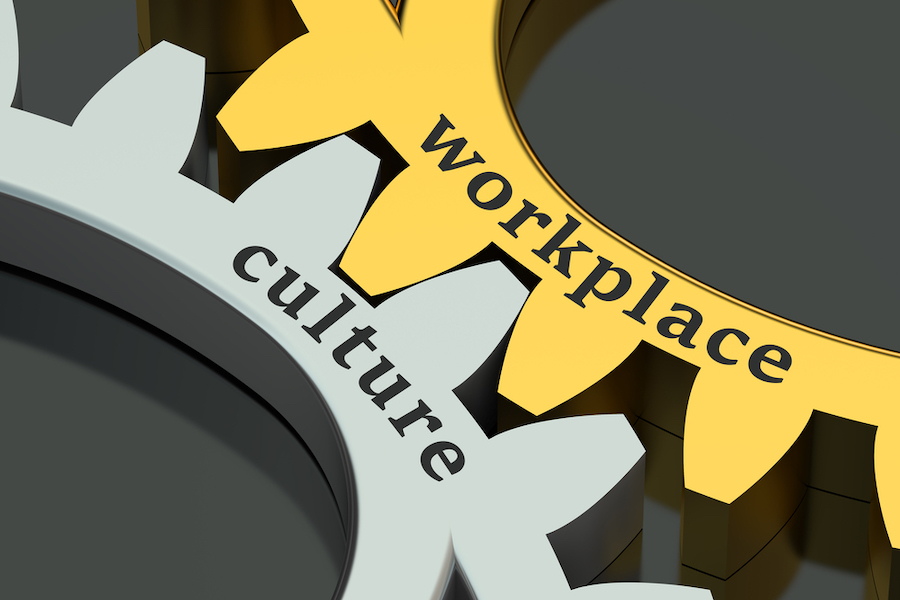Recently, I was visiting a client in the Dallas- Ft. Worth area where I often use the wonderful services of Uber to get around. I don’t know if you know about the traffic in Dallas, but you’d want to avoid driving too if you had a choice!
While I was there, a pattern arose among the drivers. They all asked me why I was visiting the area, which in turn evolved into a conversation about what I did for a living.
“I help companies with their workplace culture,” I said with pride. They all had the same response. It usually sounded something like this:
“Wow! That’s awesome!…..What does that mean?”
Hmm. I need a better way of saying this because I’m so excited about the results my clients get that I want to share it with the world. So, if you’ve been wondering what it means, let me try to clear the mud from the topic.
Every workplace has a culture. In fact, every grouping of people who come together and share traditions surrounding their attitudes, behaviors, beliefs, and values have a culture. The attributes that make up a culture are often unseen yet very present in shaping the lives of the people who operate within them. A culture in a workplace can make the difference between employees who are excited to get to work in the morning versus those who slog through their day, all the while wishing they were somewhere else.
There are several reasons for wanting to pay attention to your workplace culture, and taking the time to enrich it. I’ve listed the top three below so that you can get started thinking about the direction your workplace culture is going.
The first, and arguably the most important reason is that your workplace culture can make your policies and procedures completely powerless. While every company needs policies in place to standardize workflow according to their own direction, workplace culture is what makes sure the policies are being followed. Or not.
I worked with a company a while ago who had policies and procedures in place to ensure that everything operated in a very lean fashion. The leadership of this company subscribed to the idea that if they kept a Just-In-Time inventory that they would keep their costs down and focus on profitability from the inside out. It’s a wonderful strategy in theory, and one that gets replicated by many of the top achieving organizations out there. They believed it would work and they asked their employees to behave accordingly.
Unfortunately for them, their employees didn’t match their enthusiasm for this approach. In fact, the breakdown could be found in their beliefs. The employees believed that if they facilitated this lean supplies policy, they would be hindered from doing a good job in a smooth fashion because they wouldn’t have the supplies they needed, when they needed them. They then changed their behavior in direct opposition to their employer’s stated policy and began to hoard supplies in their own little caches hidden around the facilities. Not only were they stockpiling supplies, but they were isolating themselves from the teamwork they were supposed to be fostering in the first place by keeping their private stores to themselves. Unhealthy competition drove them apart and the company lost money due to waste.
The second reason why it’s valuable to enrich your workplace culture comes from a quote by Peter Drucker. He wisely states that “culture eats strategy for breakfast”. He’s so right in this proclamation because people are loyal to their workplace culture, they’re not loyal to strategy. People become emotionally involved with the shared beliefs and values of a company, and their behaviors subsequently stem from their normalized beliefs.
Southwest Airlines gives us a great example of this. The great, late, Herb Kelleher believed in creating a positive culture. He understood that treating employees well was at the heart of both loyal staff as well as loyal customers.
Your employees come first. And if you treat your employees right, guess what? Your customers come back, and that makes your shareholders happy. Start with employees and the rest follows from that.
—Herb Kelleher
Along with Southwest Airlines’ success came the copycat airlines who tried to capitalize on such an incredible strategy. Unfortunately for them, strategy was the only thing they were able to copy. The culture, however, remained unique to Southwest. Airlines such as Ted by United and other would-be budget fliers could not get a toe hold of the low cost sector, all while Southwest saw soaring profits. Interestingly, the strategy of all these airlines remained the same. It was the culture that they could never duplicate.
In fact, their culture has remained so strong that Southwest Airlines has thrived during economic crises because their employees have rallied around the brand in every down-turn. Is your workplace culture strong enough to save your organization in a time of crisis?
The third, very important reason for you to pay attention to your workplace culture is that by and large, employees either stay or leave their positions because of the amount of emotional safety they have. The way a person feels when they show up for work every day impacts the level of productivity they give to their employer. It really is that simple.
Think back to jobs that you have left- either from your own decision or someone else’s. Upon deciding to leave, did you feel like your emotional needs were met? Now think about a job that you loved. Were you singing in the shower before going to work? Were you happy? Were your emotional needs met?
So often, someone will want to quit a team or a company because of reasons that they really can’t quite articulate. But when the words come, they usually have something to do with how secure they are or are not. Or worse yet, someone decides to quit your company but doesn’t leave. Have you ever had one of those employees on your team?
Google, in their largess, was able to research 180 teams throughout their organization to discover what makes one team more productive or innovative over another. Of all the correlates they researched of why one team came up with great ideas while others didn’t, the only reason they found that was consistent with success was emotional safety. That is, the teams where every member felt safe to express both good and bad ideas became more innovative.
I don’t mean to get too loosey-goosey or woo woo with your workplace, but do you know how your employees feel when they come to work? Are they held safely by your culture and encouraged to thrive? Or do they keep their good ideas to themselves? Or worse yet, sabotage the efforts of others in their need to create emotional safety for themselves?
The work I do with companies and organizations to help them enrich their workplace culture ultimately leads to more positive, productive and profitable teams. And that’s why I get so fired up about the impact of workplace culture.




